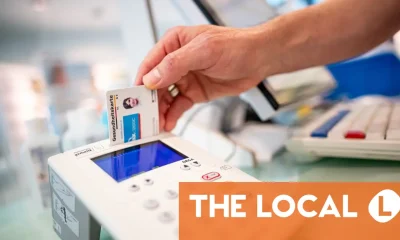Around the world drivers who like to go fast dream of flying down the German Autobahn at (almost) unrestricted speeds.
But while Germany’s national highway system is unfettered by speed limits (at least in some sections), driving on the Autobahn comes with other rules, including some that may take foreign drivers by surprise.
Running out of fuel while driving on the Autobahn, for example, is illegal.
Most drivers know better than to let their fuel tanks run dry because it’s bad for the engine, but if it happens on a German highway, it’s actually a punishable offence.
Why is it illegal to run out of fuel on the Autobahn?
Given the high speed of traffic permitted, stopping on German highways can be extremely dangerous. Therefore traffic law forbids stopping on the Autobahn, as well as turning around or driving in reverse.
Of course an exception is made for breakdowns that are out of your control. If you blow a tire, or another unexpected mechanical failure brings your car to a stop, you wont be penalised as long as you follow all other traffic safety laws.
Running out of fuel, however, is considered a preventable offence and is therefore not excusable in the eyes of German traffic law.
So when driving in Germany, it’s worth double checking your fuel gauge before getting on the highway.
READ ALSO: Ice to the Autobahn – 8 common myths American travellers have about Germany
People drive on the Autobahn in Laichingen in Baden-Württemberg. Photo: picture alliance/dpa | Stefan Puchner
What’s the penalty?
Running out of petrol on the highway in Germany is considered an administrative offence, and it’s punished similar to an unauthorised stop on the Autobahn.
A stop on the motorway for less than three minutes can result in a fine of €35. Anything over three minutes is considered parking on the highway, which results in a fine of €70.
In the worst-case scenario, however, you may run out of petrol and cause an accident by breaking down in the middle of the road. In this case you could be charged with gross negligence and be handed a much more severe punishment, depending on the situation.
Advertisement
What to do in a breakdown
If you do experience a breakdown on the highway – due to running out of fuel or otherwise – it’s good to know how you should handle the situation in Germany.
First, you should pull over as far to the right as possible and park the car on the shoulder of the road.
Next put on your safety vest and set up a warning triangle behind your rear bumper. (You should keep these items in the trunk of your car at all times in Germany.)
Once your car is parked and secured, you should call roadside assistance, like that offered by motorists’ club ADAC or a local mechanic. Do not attempt to walk to the petrol station yourself.
When calling emergency services, be sure to them which type of fuel you need. In most cases, roadside service can be expected to arrive within 30 minutes.
READ ALSO: What are the rules around driving a friend or relative’s car in Germany?
Advertisement
Keep eyes on the fuel gauge
The easiest way to avoid running out of fuel is simply to head to the nearest petrol station as soon as your fuel gauge lights up.
In most cars, the fuel indicator comes on when there is around seven liters left in the tank. You can find the specific amount in your car’s manual.
To be on the safe side, it’s advisable not to plan to drive more than 50 kilometres from the point when the indicator light comes on. Beside the potential fines, running out of fuel completely can cause expensive damages to your fuel pump.
LISTED: The items you can’t carry in your car in Germany





































